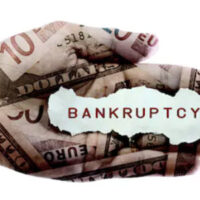What is the Difference Between a Bankruptcy Discharge and Debt Cancellation?

Anyone in South Florida who is struggling with debt should understand the difference between the discharge of debt that occurs in a bankruptcy case and the cancellation of debt that can happen outside a bankruptcy case. Depending upon your circumstances, it may be possible to have a lender agree to cancel certain debts you owe, but in some cases, debt cancellation might ultimately end up costing you a significant amount of money in the long run due to the taxes you will owe on that amount. As such, and especially if you are not eligible to have all of your outstanding debts canceled, bankruptcy might be the more logical option for you. An experienced West Palm Beach bankruptcy lawyer at our firm can provide you with additional information about the distinctions between debt discharge and cancellation, and we can answer any questions you might have today.
What is a Bankruptcy Discharge?
Bankruptcy discharge is the process that occurs in a bankruptcy case “when a debtor is no longer responsible or liable for the debt,” according to the Cornell Legal Information Institute. In addition to no longer being liable for a discharged debt, a discharge also means that “the lender is no longer allowed to make attempts to collect the debt,” the LII explains.
What is Debt Cancellation?
Debt cancellation, differently, “happens when the lender agrees that the rest of the debt is forgiven,” according to the LII. In other words, when debt is canceled (or “forgiven,” as it is sometimes described), the creditor agrees to forgive the debt the debtor owes, and the debtor will not be responsible for it.
How Are Discharges and Cancellations Similar and Different?
With both discharges and cancellations, the debtor is no longer responsible or liable for the debt. However, in most cases, any debt that has been canceled or forgiven is taxable, which means the debtor must pay taxes on it as if the amount forgiven were income, according to the IRS. Differently, debtors do not owe taxes on debts that have been discharged in bankruptcy.
Debt Consolidation is Something Distinct from a Discharge and Cancellation
Although the terms might sound similar, it is important to be clear that debt consolidation is entirely distinct from debt cancellation or a debt discharge in bankruptcy. As a NerdWallet article explains, debt consolidation typically involves a debt consolidation loan in which you can combine several or more unsecured debts into one monthly payment, and usually at a lower interest rate than you have on the existing loans. With debt consolidation, debts still exist, but they are repaid in the form of a single regular payment.
Contact Our West Palm Beach Bankruptcy Lawyers
Whether you have questions about bankruptcy and having your debts discharged, or you are seeking assistance with your bankruptcy case, one of the experienced West Palm Beach bankruptcy attorneys at Kelley, Kaplan & Eller can speak with you today. Our firm can represent you in your bankruptcy case and we can provide you with any additional information you need about the bankruptcy process in South Florida.
Sources:
law.cornell.edu/wex/discharge_(of_debts)#:~:text=Courts%20can%20issue%20a%20discharge,of%20the%20debt%20is%20forgiven
irs.gov/taxtopics/tc431
nerdwallet.com/m/loans/personal-loans/consolidation-loans?utm_source=goog&utm_medium=cpc&utm_campaign=pl_mktg_paid_roundup_debt_consolidation&utm_term=kwd-32103803&utm_content=ta&mktg_hline=154639458948&mktg_place=consolidating%20debt&affiliateId=1347&affiliateName=Google_PL_MP&subId1=pl_mktg_paid_roundup_debt_consolidation&subId2=154639458948&subId3=kwd-32103803&subId4=648452762147&subId5=&subId6=c&subId7=p&subId8=g&gad=1&gclid=Cj0KCQjwz8emBhDrARIsANNJjS7E6jOLOCfEeQUSSJ2ySc4Du4Mhd70-uVMzjD-xSsebWJmY8beh95kaAm9mEALw_wcB



